Dear Families
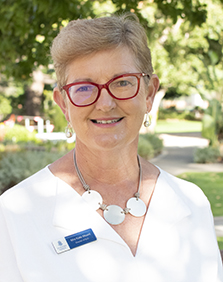
We enter the second half of the term with a great sense of excitement as the much awaited ELC Garden opens for use. Greenplay has done such a wonderful job of constructing this new space which was so purposefully designed by ELC staff and Swanbury Penglase. We are so fortunate to work alongside such professionals who share our vision for children and play, creating open-ended play spaces that ignite curiosity and problem-solving.
The garden reflects our narrative, our story of learning in the ELC over the past few years as we share our land together, our Kaurna Yerta, which builds deep values of respect, connection, and culture. Each section of the gardenscape is connected with pathways winding through, enabling children to utilise many elements in their play. Additions such as trickling taps and a natural course way into the sandpit will provide our children with new delights and opportunities to extend their learning with a scientific mindset. Educators will have the chance to use these spaces with intentional learning experiences which will further expand what we are able to offer here at the ELC.
There are many key symbols in the garden and the children can connect these to their learning indoors, as well as to their Ferguson Park experiences. We have been intentional around our use of symbols including animal footprints represented in Kaurna, the Rainbow Serpent which has been an ongoing shared story throughout the ELC for the past two years, symbols from Ferguson Park, palti circles and fire pits. There are also places for gathering, a sensory kitchen to explore, and many colours reflecting our connection and sense of belonging to the ELC. All of these symbols have a direct connection to us; they are a strong part of our identity.
We are looking forward to welcoming our community to an official opening early next term. Please save the date of Thursday 21 October at 9.30am. We hope our redesigned landscape can provide joy and intrigue for all of us in the years to come.
Kate Mount
Director of Early Learning
Important Dates
Wednesday 1 September: Coffee Van for ELC Families
Monday 13 – Tuesday 14 September: Parent-Teacher Conversations
Monday 20 September: Parent-Teacher Conversations
Friday 24 September: Last day of Term 3
Monday 27 September – Friday 8 October: Vacation Care
Monday 4 October: Public Holiday (ELC Closed)
Monday 11 October: Term 4 commences
Learning to Think Like Mathematicians in Learning Community 1
One of the earliest mathematical skills children demonstrate is the ability to notice and make comparisons in the environment around them. We guide them to use mathematical language such as ‘bigger than’ or ‘smaller than’, and this provides the foundation for the development of all mathematical skills to follow.
As an ELC – 12 School, our ELC educators collaborate with Mathematical Consultant Lisa-Jane O’Connor, who also works with Junior School staff, to ensure seamless mathematics education, from the very beginnings of understanding numbers and shapes through to the mathematical skills and knowledge they will build upon in Learning Community 2.
Watch our video to see how our youngest children begin confidently exploring mathematical concepts.
Annabelle Redmond and Jessica Catt
Learning Community 1
Vacation Care Bookings Open
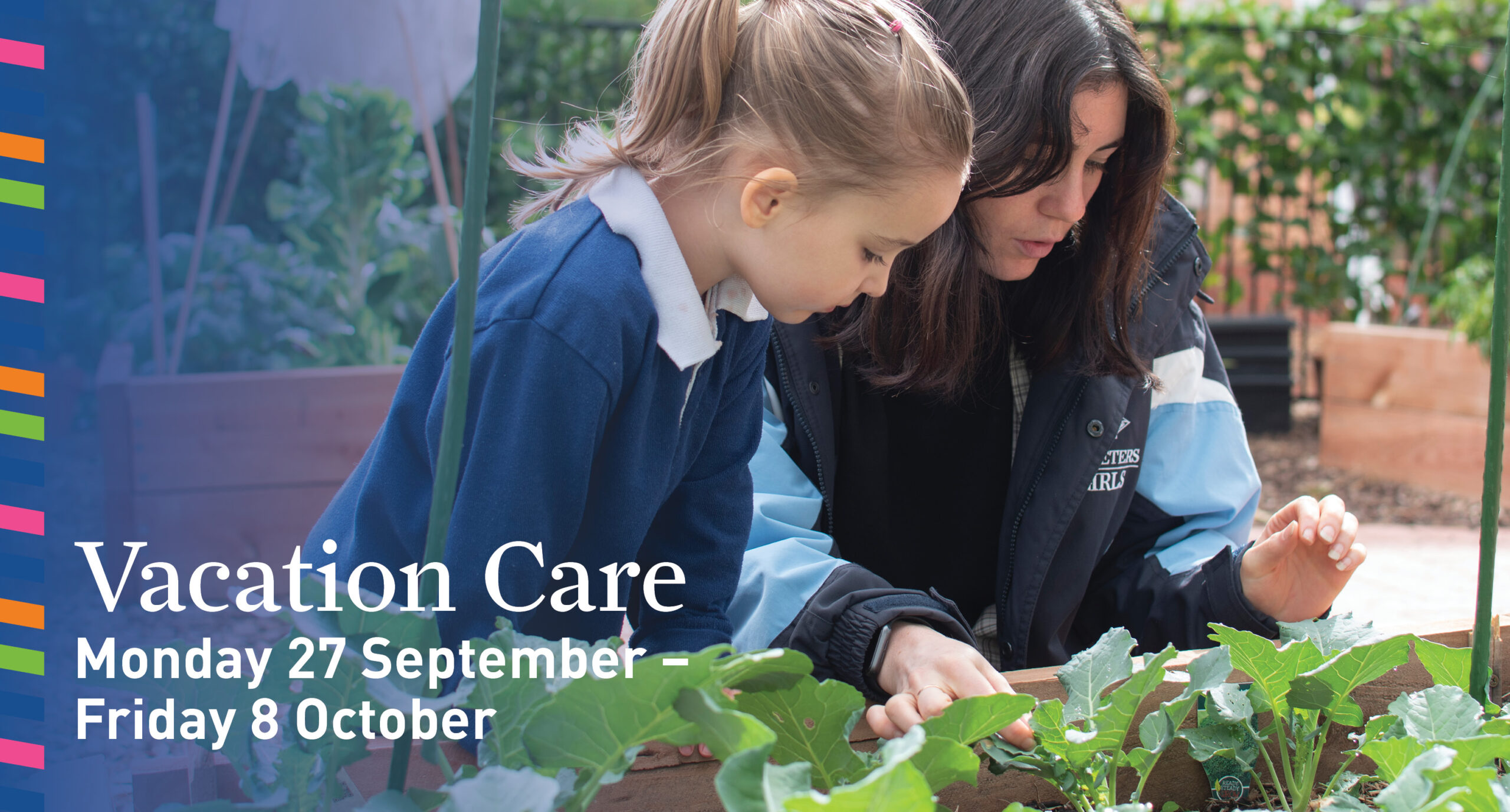
In order to streamline bookings and make the process easier for our families, the ELC Vacation Care booking system is now online through TryBooking. Bookings can be made until 5pm, Friday 10 September via www.trybooking.com/BTRHD
A booking instruction sheet has gone home with families. If you haven’t received it, you can download a copy here.
Please note: Monday 4 October is a public holiday and the ELC will be closed.
Henrietta Balnaves and Danniella Capaldo
Extended Hours Care Team
Enjoy a ‘Thank You’ Coffee or Cuppa

While we unfortunately cannot hold our Special Friends’ Breakfast, as a small token of our appreciation to our wonderfully patient community we will have a coffee van on Hallett Road from 7.30 – 9.15am on Wednesday 1 September. Please stop by and make an order as you drop your child at ELC.
Although we are delighted to be able to give back to our community, we must remind families to please remember to wear masks and practise physical distancing.
Kate Mount
Director of Early Learning
Save the Date for Our Garden Grand Opening!
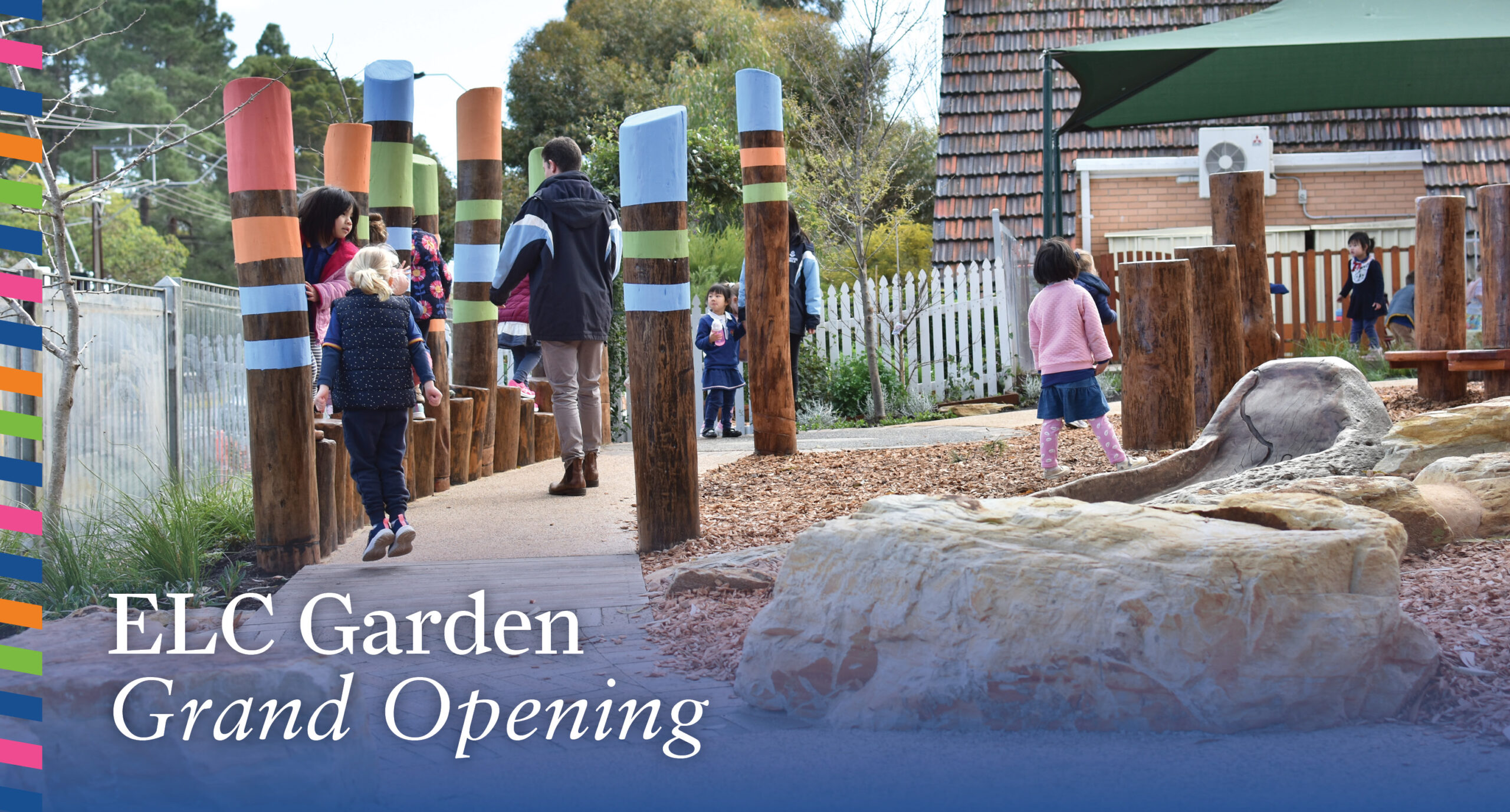
We are planning to hold a grand opening of our new ELC Garden where families can experience the joy of this breathtaking space, and hope you can save the date of Thursday 21 October at 9.30am.
Parent-Teacher Conversations

ELC Parent-Teacher Conversations will take place on Monday 13, Tuesday 14 and Monday 20 September 2021. There are designated 15-minute time slots for families to meet with your child’s teacher.
We strongly encourage you to book a meeting. From these discussions, future goals for your child can be created to ensure they reflect the perspectives of families and educators.
Bookings will be open from 8am, Tuesday 31 August until 5pm, Wednesday 8 September.
Bookings can be made via myLink:
- Log in to the myLink parent portal with your username (your ID) and password. If you don’t know your password, use the link provided on the login page to reset it.
- Once you have logged in and arrive on the Welcome page, click the ‘Community Portal’ tab in the top menu, then click the ‘Interviews’ tab and select the required cycle. You can log in and change your booking any time up to 5pm, Wednesday 8 September.
If you require myLink assistance, please contact the IT Helpdesk via 8334 2227 or helpdesk@stpetersgirls.sa.edu.au
Father’s Day Virtual Gift Stall

The Friends of the ELC are holding a Father’s Day Virtual Gift Stall where all of our students from ELC to Year 12 are able to purchase gifts online for dads, grandfathers, uncles or other treasured people in their lives.
We have a variety of wonderful gifts available for $5 each. There is limited stock, so get in early to avoid disappointment. Gifts will be wrapped and delivered to classes on Thursday 2 September.
To order, visit the TryBooking link.
Purchases close on Monday 30 August at 9am.
If you have any queries, please contact Fiona McGregor in the Community Relations Office via fmcgregor@stpetersgirls.sa.edu.au.
Top Trip in the Top End

In week 4 I was lucky enough to spend a wonderful week in North East Arnhem Land, located at the top of Australia in the Northern Territory.
I lived with a rural Yolngu community and visited many beautiful beaches and sacred sites around Arnhem Land. It was an incredible cultural immersion experience, where I gained valuable understanding and perspective of indigenous Australians, their thriving culture and ways of living. I feel very fortunate to have been given an opportunity to experience first-hand a culture that is so strongly grounded, one that has existed for thousands of years with rich history and beliefs and that continues to thrive today.
One concept that resonated with me and the work we are doing here at the ELC was the strong relationship that the Yolngu people have with the land surrounding them. The land is not just something they care for; it is an active participant in their everyday, a part of their family. I hope to help further embed this deep understanding in our rituals within the ELC, primarily through our visits to Ferguson Park.
Henrietta Balnaves
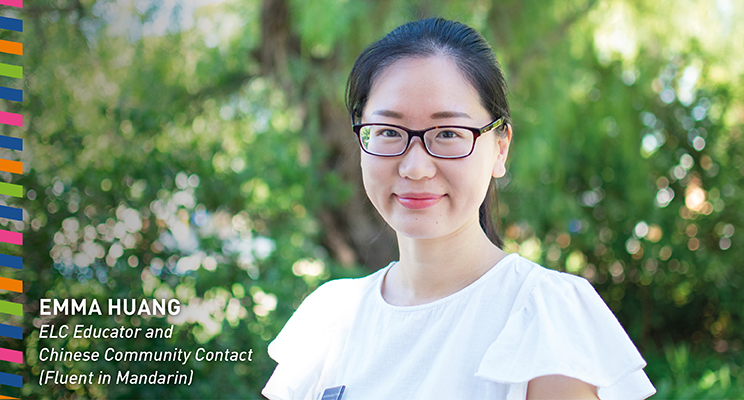
来自黄老师的信息
亲爱的家长朋友们,
这个学期已经过半。令人激动的是我们规划已久, 备受期待的ELC花园已经进入使用。ELC员工和Swanbury Penglase设计师们精心设计了崭新空间,Greenplay出色建造了这一空间。我们很幸运能与这样的专业人士合作,他们对儿童玩乐的理解同我们一致,创造了开放的学习娱乐户外空间,增强了孩子们探索和解决问题的能力。
这个花园叙述了过去几年里我们在ELC的故事,学习我们一起分享我们的土地,我们称之为Kauran Yerta的原住民土地。我们在这里建立了互相尊重、互相联系以及不同文化相融在一起的深刻价值观。花园的每个部分都是彼此相连,道路蜿蜒曲折,将多种元素融入在孩子的游玩之中。新增加的流水,自然流入沙坑,这将为我们的孩子提供新的乐趣和机会,扩展了他们的科学探索学习的逻辑思维。教师们将利用这些空间进行有意义的教学活动,进一步在ELC创造更多的学习机会。
花园中有许多重要的象征符号,孩子们可以将这些符号与他们在ELC内的学习以及弗格森公园(Ferguson Park)的学习经历联系起来。我们一直有意的在使用这些符号,这些符号包括代表原住(Kaurna)中动物脚印的符号。一些代表了“彩虹蛇”——这个故事在过去两年里在ELC里我们一直在与孩子们分享。一些我们在花园里重复出现的来自弗格森公园的符号。集会圈(Palti Circle)和篝火堆代表了我们相聚的地方。一个感官体验的厨房,那是让孩子们尽情探索的地方。各种颜色的符号反映了我们对ELC的紧密联系以及归属感。所有这些符号都与我们有直接的联系,它们是我们身份象征的一部分。
我们期待10月的正式开放,为此我们将定于10月21日上午9:30。我们希望重新设计的花园能在未来的岁月里为我们所有人带来更多的欢声笑语。
园长
Kate Mount
Emma Huang works in Learning Community 2 on Mondays, Tuesdays, Thursdays and Fridays from 9am – 5pm.
Sustainability in the ELC
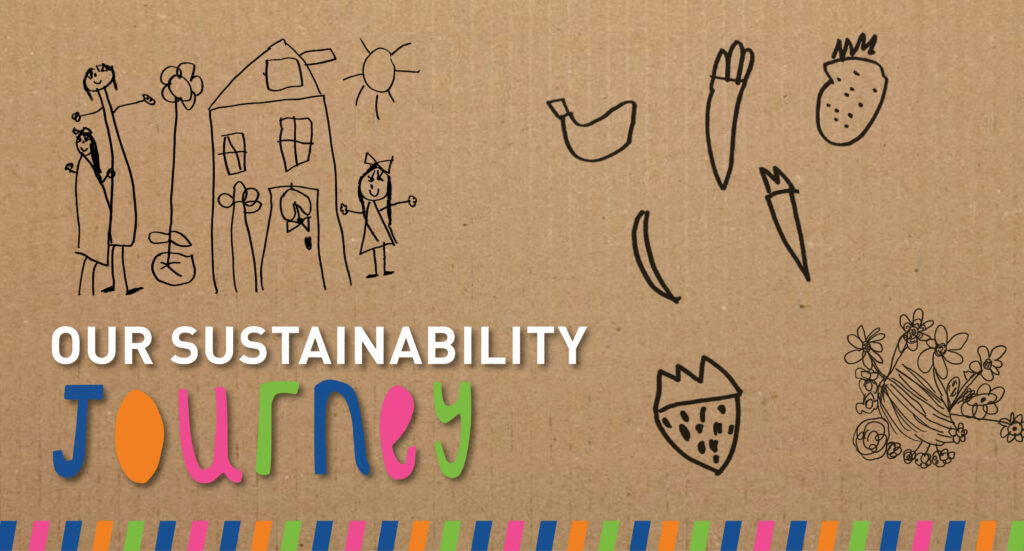
Over the past few weeks, Learning Community 2 has taken advantage of the sunshine with regular visits to Ferguson Park. The children have not only enjoyed the beautiful sights, sounds and smells of spring about to emerge, they have also brought with them a different lens when viewing the park.
Last week, we noticed the children’s knowledge and understanding of waste and ‘what bin’ extend beyond the walls of the ELC through a conversation emerging around some waste found in the park…

‘Look! Rubbish!’ – Harriet
‘That’s not supposed to be in Ferguson Park!’ – Ishani
‘I think that’s from the coffee shop down the road. My mummy goes there. But that’s not hers.’ – Emerson
‘We need to pick it up!’ – Axel
‘Yeah or an animal might come and eat it. Then they will get sick.’ – Harvey
‘Sometimes my daddy picks up rubbish he finds.’ – Maddie
‘If a bird tries to eat rubbish, it might die.’ – Chen Feng
‘We need to put it in the red bin.’ – Emerson
‘That goes to landfill. Smelly!’ – Isabella
This organic conversation that occurred between a group of children highlights not only their deep knowledge and understanding around waste, but also their connection to Ferguson Park and the responsibility they hold to look after the land.
Henrietta Balnaves
News from Learning Community 1

Fine motor skills refers to the movement and coordination of the small groups of muscles in children’s arms, hands and fingers. From an early age, children begin to use, develop and refine these skills.
Using these muscles and developing these skills in early childhood is pivotal for everyday activities later in life, including the ability to mark-make and write. As the muscles develop, children move from grasping objects with a fist to using a more developed pincer grip in order to manipulate and control smaller objects and tools.
At the ELC, children are provided with a range of opportunities across their day to use these small muscles and develop their control and coordination. These experiences include play dough and clay manipulation, cutting, threading, painting, drawing, mark-making and writing, and using blocks for building and construction.
To further support fine motor development at home, there are many opportunities for children to explore everyday household objects including:
- Using tongs or tweezers to pick up objects
- Putting container lids on and off
- Using mark-making tools such as crayons, pens and pencils
- Doing up and undoing buttons
- Using scissors to cut different materials
- Digging in the dirt or sandpit
In Learning Community 1, we lay the foundation for the development of these skills which then allows them to be built upon and refined in Learning Community 2 and future schooling.
Annabelle Redmond and Jess Catt
Learning Community 1
News from Learning Community 2

In Learning Community 2, we have been reading the story This is Our House by Michael Rosen and Bob Graham. Many of the friends have expressed their concerns about George’s behaviour in the story, and it has opened up dialogue around collaborative play and the language we use with others. We have also been discussing how we communicate using our facial expressions.
Through vigorous discussions in our inquiry groups, we have challenged the children to observe and study George’s non-verbal clues and invited them to share their concerns around his sharing of the box house.
How would you feel if you weren’t allowed in George’s house?
How could you solve this problem?
We used role play to act out the conflict in the story. This experience brought such joy and laughter to our morning meetings. Then, our meetings started to shift as we became more focused and began brainstorming ways we would problem-solve if George wouldn’t let us in his box house. The children began challenging each other’s problem-solving strategies, discussing why they thought it would or wouldn’t be successful.
Our intention through this inquiry is to support the children to develop a toolkit of strategies for conflict resolution. Conflict is a normal part of children’s lives. Having different needs or wants, or wanting the same thing when only one is available can easily lead children into conflict with one another. Common ways that children respond to conflict include arguing, as well as more passive responses such as backing off and avoiding one another. When conflict is poorly managed, it has a negative impact on children’s relationships, on their self-esteem and on their learning. However, teaching children the skills for resolving conflict can help significantly.
Making and designing houses has been the vehicle that has enabled the children to transfer these strategies to real-life scenarios. Conflict within play has been present and the children are reflecting on the events in the story. We have observed the children being more vocal within their play, standing up for their rights and listening more to one another. By understanding how to manage conflict effectively, children’s skills for getting along with others can be improved, fostering friendships and learning at school.
Nell Tierney, Laura Reiters and Kirsty Porplycia
Learning Community 2
Find Out What Happens Throughout
the Day at ELC
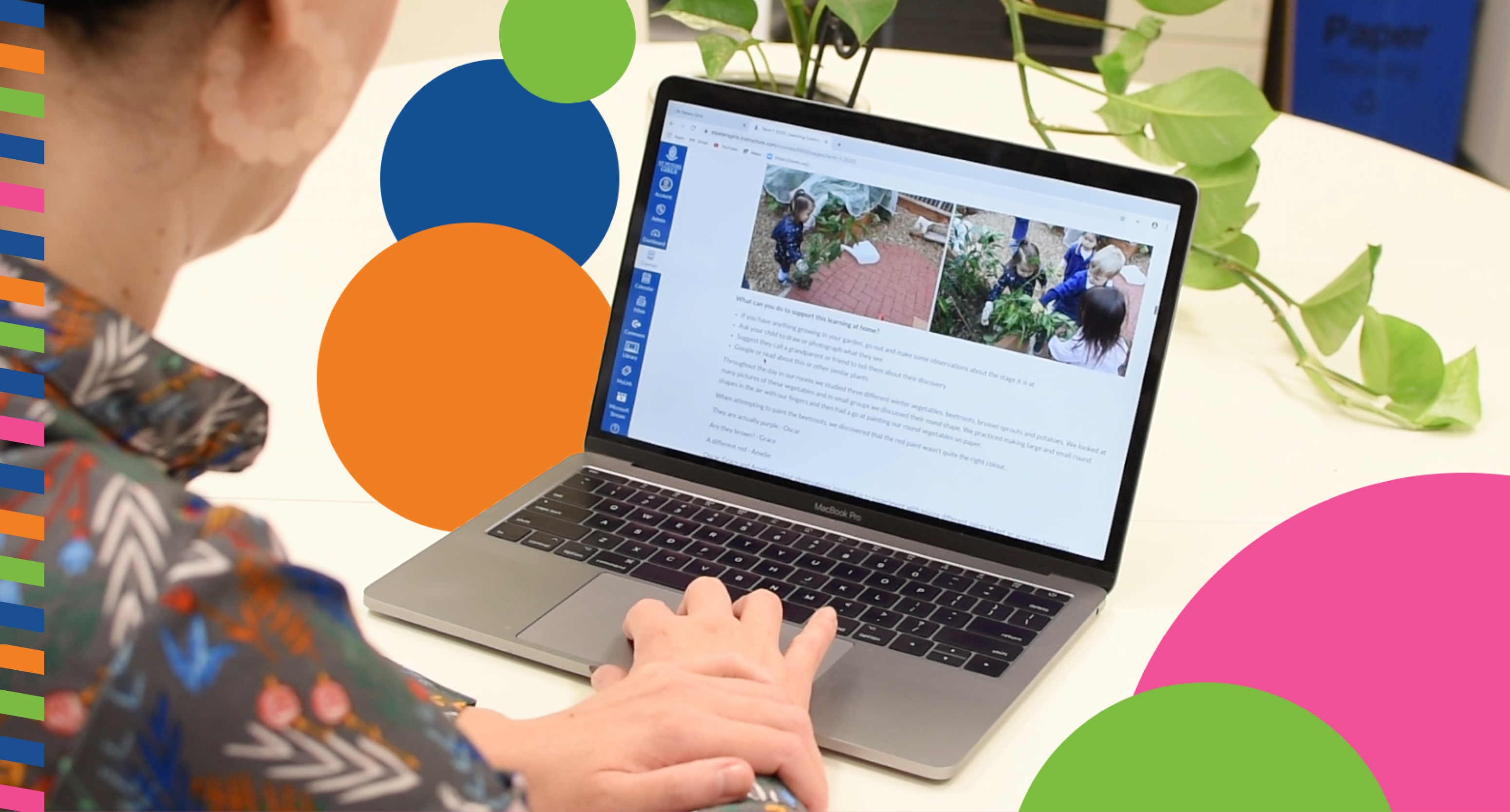
The ELC Learning Community Home Page is a dynamic online sharing space that invites you to participate in the communities’ learning as it happens. We use this tool to communicate important information with families and provide a window into the children’s life at the ELC, as educators share documentation of teaching, specialist lessons and spontaneous moments.
Accessing myLink for the first time:
- Visit https://mylink.stpetersgirls.sa.edu.au
- To set your password, click the link located below the sign in section
- Your user name was emailed to you upon your child’s commencement (see Helpdesk contact details below if you cannot source your user name)
- Enter your unique user name, click ‘Next’
- Enter the security code sent to your mobile
- Enter the password you would like to use and press submit
- Return to the login screen at https://mylink.stpetersgirls.sa.edu.au to access myLink
- Several instructional videos are available via the Welcome page if you click on the ‘HELP’ menu tab
Accessing the Learning Community Home Page through myLink:
- Access myLink as per the above instructions
- Click on the ‘MYLINK HOME’ tab
- Click on your child’s name tab
- Under ‘Class Contacts’, click on the ELC room name (you may need to enter your user name and password again)
If you have any issues accessing or navigating myLink, please contact the IT Helpdesk via helpdesk@stpetersgirls.sa.edu.au or 8334 2227.
ELC’s Online Etiquette Policy:
Please note that the ELC Learning Community Home Page and ELC News contain images and videos of other children. We therefore ask that you do not copy or share images or videos, especially on social media, if they contain other children.
Absences in the ELC
Student Absences
Please notify the School via one of the following methods for late arrivals/early departures and absences, ensuring a reason for the absence is included.
Text: 0428 601 957 (save to phone contacts as SPGS)
Email: attendance@stpetersgirls.sa.edu.au
Phone: 8334 2200 or phone the relevant room as per the contact list below.
Please include the relevant room teacher when sending via email.
ELC Room Contacts:
Bell Yett – 8155 5777
Ferguson – 8155 5776
Hallett – 8155 5775
Stonyfell – 8155 5778
ELC Immunisation Policy
Under the Government’s No Jab No Play policy, families must meet immunisation requirements to attend the ELC and receive the Child Care Subsidy. Families are required to provide all approved immunisation records to the ELC. Further information is available by clicking here.
Children who are suffering from illnesses such as those listed below must be excluded from ELC in line with our Exclusion Policy:
- Influenza
- Chicken Pox
- Conjunctivitis
- Diarrhoea
- Hand, Foot and Mouth Disease
- High Temperature
- Infectious Hepatitis
- Measles
- Meningitis
- Mumps
- Rubella (German Measles)
- Scabies
- Scarlet Fever
- School Sores (Impetigo)
- Upper Respiratory Tract Infection
- Vomiting
- Whooping Cough




